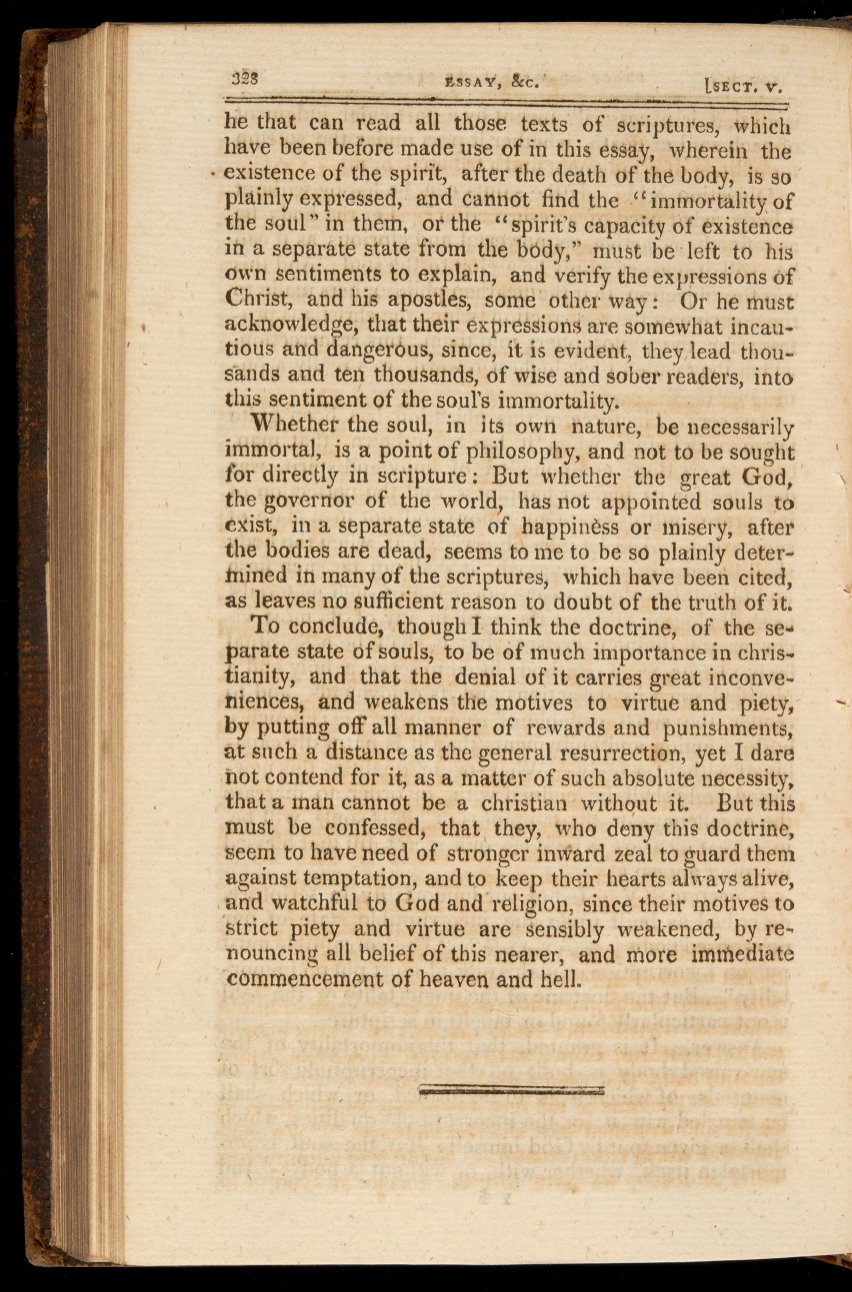

328
P.S$AY,
&c.
[SECT.
V.
he
that
can
read
all those texts
of
scriptures,
which
have been
before
made use
of
in
this
essay,
wherein the
existence
of
the spirit,
after
the death
of
the
body,
is so
plainly expressed, and
cannot
find
the
"immortality of
the soul"
in them,
or
the
"
spirit's capacity
of
existence
in a
separate state
from
the body," must
be
left to
his
own
sentiments to explain, and
verify
the expressions
of
Christ, and
his
apostles, some
other
way
:
Or
he
must
acknowledge,
that
their
expressions are somewhat incau-
tious
and dangeròus,
since,
it
is
evident,
they,
lead
thou-
sands and ten thousands,
of
wise
and
sober readers, into
this sentiment
of
the
soul's
immortality.
Whether
the
soul,
in
its own
nature,
be necessarily
immortal,
is
a
point
of
philosophy,
and not
to
be
sought
for directly
in
scripture
:
But whether the great God,
the governor
of
the world, has
not appointed
souls
to
exist,
in
a separate state
of
happiness or
misery,
after
the
bodies
are
dead,
seems
to
me to
be so
plainly
deter-
mined
in many
of
the scriptures, which have been cited,
as
leaves no sufficient
reason
to
doubt
of
the
truth
of
it.
To
conclude, though
I
think the doctrine,
of
the
sed
parate
state
of
souls,
to
be
of
much importance in chris-
tianity, and
that
the denial
of
it
carries
great
inconve-
niences, and weakens the motives to virtue
and
piety,
by
putting
off all
manner
of
rewards and punishments,
at
such a distance
as
the general resurrection, yet
I
dare
not
contend for
it,
as
a
matter
of
such
absolute
necessity,
that
a
man
cannot
be
a christian without
it.
But
this
must
be
confessed,
that
they, who
deny this
doctrine,
seem to have
need
of
stronger inward
zeal to
guard
them
against temptation, and
to
keep
their hearts
always alive,
and
watchful to
God
and religion,
since
their
motives to
strict
piety and
virtue are
sensibly weakened,
by
re-
nouncing
all
belief
of
this
nearer, and
more immediate
commencement
of
heaven
and
hell.

















